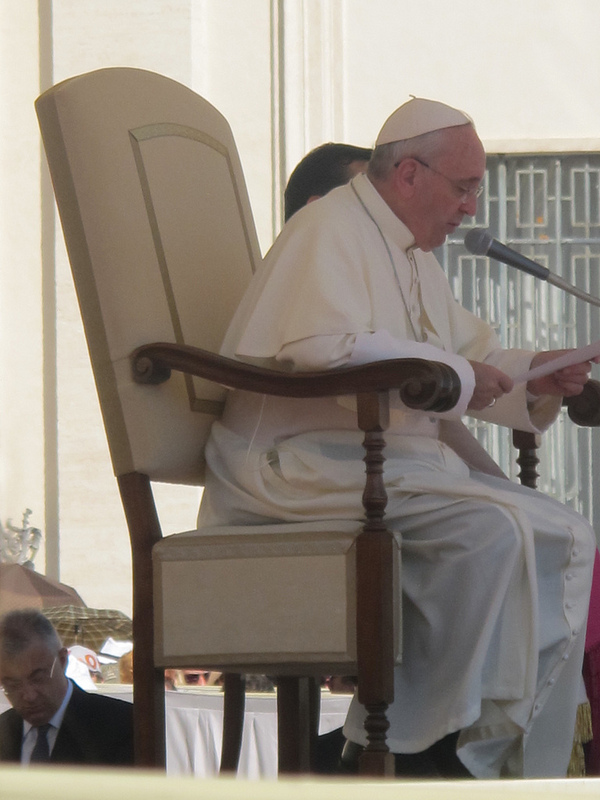Thank you Burghard Ilge of the Netherlands-based development NGO Both Ends for sharing this Vatican statement on the WTO Ministerial meeting in Bali, Indonesia last week. Pope Francis has made his views about global capitalism very clear over the past year. Last week, the Pope recognized the locking-in effect of global trade rules, though he did not go as far as some on the ground in Bali in demanding that the WTO be junked altogether:
While a minority is experiencing exponential growth in wealth, the gap is widening to separate the vast majority from the prosperity enjoyed by those happy few. This imbalance is the result of ideologies that defend the absolute autonomy of the marketplace and of financial speculation. Consequently, there is an outright rejection of the right of States, charged with vigilance for the common good, to exercise any form of control. A new tyranny is thus born, invisible and often virtual, which unilaterally and relentlessly imposes its own laws and rules. An even worse development is that such policies are sometimes locked in through trade rules negotiated at the WTO or in bilateral or regional FTAs.
To read the full statement, click here.
In Bali, outside the WTO negotiations, farmers from La Via Campesina held a silent procession to commemorate the sacrifice of Korean farmer Lee Kyung Hae, who stabbed himself to death outside the Cancun ministerial in 2003. Hae held a sign that read “WTO Kills Farmers” before immolating himself, shocking the large group of protesters in Cancun and drawing global attention to the talks, which failed and continue to stall to this day.
Maude Barlow, national chairperson of the Council of Canadians, told The Western Producer at the time, “I’m here [in Cancun] because the WTO is a terrible institution that undermines the rights of citizens and props up rich governments and the corporations that support them… It is destroying small farmers by creating rules that favour the rich subsidizers. It is secretive. It serves the rich and powerful.”
WTO discussions continued in Bali through December 6. Once again food issues threatened to block a package of WTO reforms and new agreements on the table. The Indian government is taking the blame for wanting to protect a food security policy that subsidizes local farmers in order to provide cheap food for 800 million poor people. But as farmers, fair trade activists and others point out, the U.S. and EU also provide billions of dollars of support to their farmers, and there is no good will on their part to fix WTO rules so that food security and general welfare can be better accommodated into global trade rules.
We’ll end as we began, with the Pope’s statement last week:
In recent years the Holy See consistently has expressed concern about food security, as stated by Pope Francis in His Message for the World Food Day “… an invitation to rethink and renew our food systems from a perspective of solidarity, overcoming the logic of unbridled exploitation of creation and orienting better our commitment to cultivate and look after the environment and its resources, to guarantee food security and progress towards sufficient and healthy food for all”. The “text on public stockholding for food security purposes” follows along the same lines and could represent a good basis for the future negotiation in the post-Bali Agenda. We invite all delegates to support and finalize an agreement that would provide a more secure, stable and equitable access to food for countries that need it.
Photo: UK in Holy See/flickr



